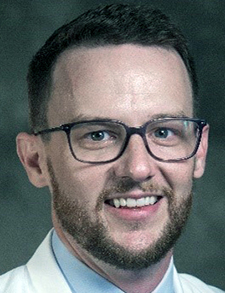
Dr. Watson
Clinical question: Does oral anti-coagulation reduce stroke or systemic embolism risk in subclinical atrial fibrillation (AF)?
Background: Studies have shown an increased risk of stroke and systemic embolism in subclinical AF (short, asymptomatic episodes detected by permanent pacemakers and implantable cardiac defibrillators). While oral anti-coagulation has a well-recognized role in the treatment of clinical AF, its role in subclinical AF is uncertain.
Study design: Randomized controlled trial
Setting: 247 clinical sites in 16 European and North American countries
Synopsis: The study included 4,012 patients with subclinical AF (asymptomatic episodes lasting six minutes to 24 hours detected by permanent devices) with a mean age of 76.8 ±7.6 years and mean CHA2DS2-VASc score of 3.9 ±1.1. Women represented 36.1% of participants. The mean follow-up was 3.5 ±1.8 years. Patients were randomized in a double-blind, double-dummy fashion to receive apixaban 5 mg twice daily (or 2.5 mg twice daily when indicated) or aspirin 81 mg daily. The study showed a reduced risk of stroke or systemic embolism with apixaban compared to aspirin in the intention-to-treat population (0.78% versus 1.27% per patient-year; hazard ratio [HR], 0.63; confidence interval [CI], 0.45 to 0.88; P=0.007). In the on-treatment population, apixaban was associated with a higher risk of major bleeding compared to aspirin (1.71% versus 0.94% per patient-year; HR, 1.80; CI, 1.26 to 2.57; P=0.001). Most bleeding episodes reportedly responded quickly to supportive care. Providers should consider apixaban in elderly patients with subclinical AF weighing the reduced risk of stroke or systemic embolism against the increased risk of major bleeding.
Bottom line: Apixaban lowered the risk of stroke or systemic embolism compared to aspirin in patients with subclinical AF, but it was associated with a higher risk of major bleeding.
Citation: Healey JS, Lopes RD, et al. Apixaban for stroke prevention in subclinical atrial fibrillation. N Engl J Med. 2024;390(2):107-17.
Dr. Watson is a hospitalist at Duke University Hospital and a medical instructor in the department of medicine at Duke University School of Medicine in Durham, N.C.